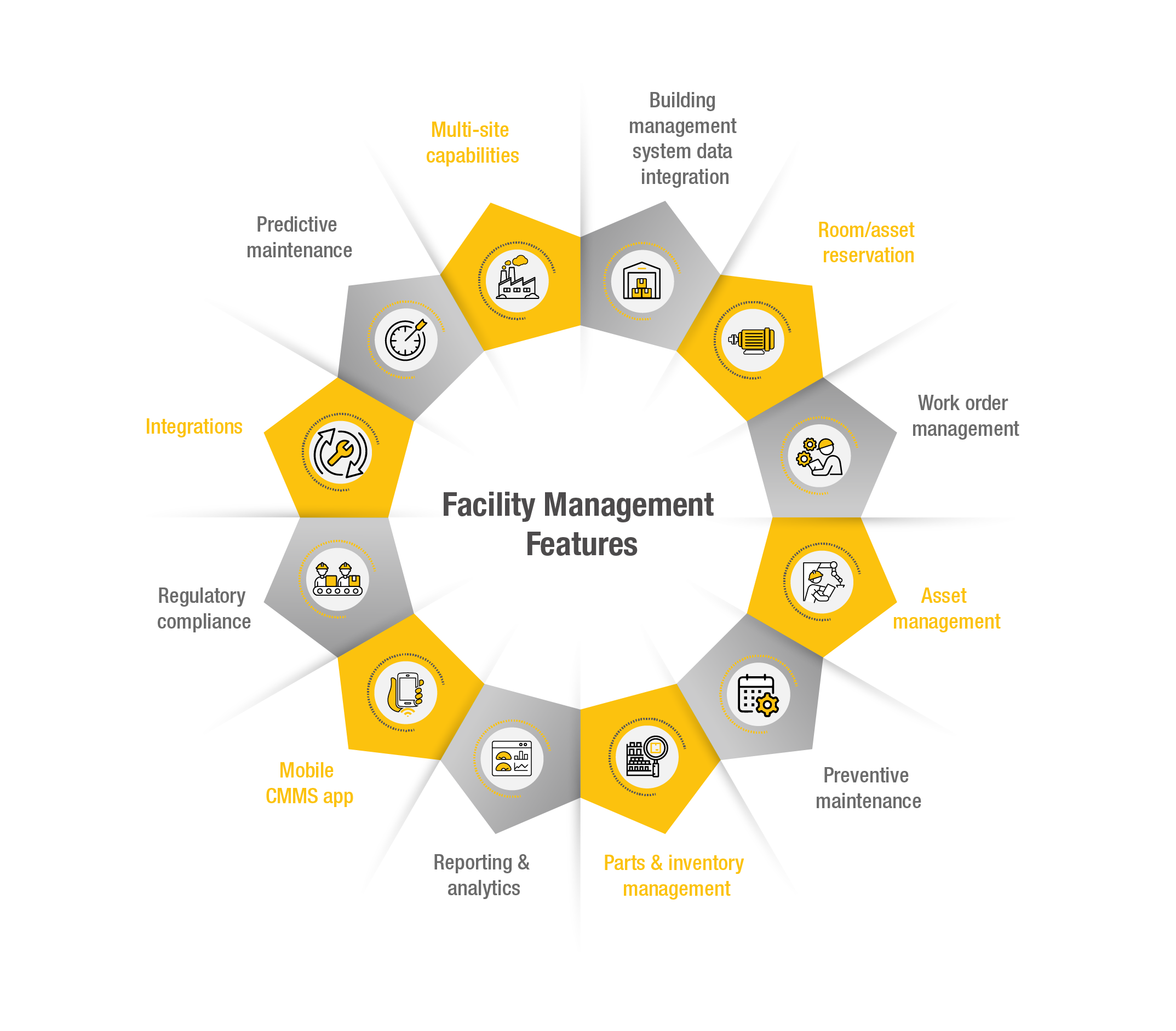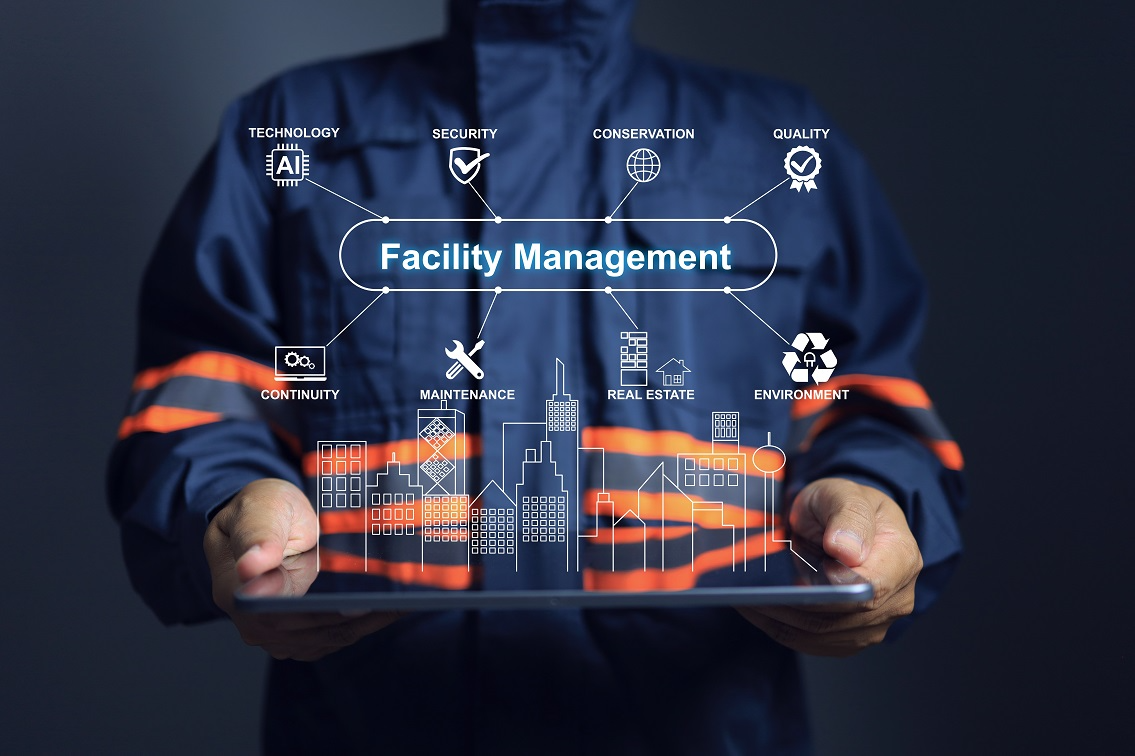Facility Management Solutions-- Optimize Your Structure's Effectiveness
Facility Management Solutions-- Optimize Your Structure's Effectiveness
Blog Article
Trick Patterns Forming the Future of Center Monitoring in 2024
As we look ahead to 2024, the landscape of center management is positioned for considerable change, driven by numerous essential patterns. The integration of clever building modern technologies and a change towards data-driven decision-making guarantee to boost operational performance while focusing on sustainability in practice.
Smart Structure Technologies

Smart building innovations incorporate a wide variety of systems, consisting of intelligent illumination, HVAC controls, and safety systems. By integrating these systems, center managers can check and readjust criteria in real-time, leading to substantial reductions in energy waste and functional expenses. Wise sensing units can find occupancy degrees and readjust lighting and temperature appropriately, guaranteeing that energy is just utilized when necessary.
Furthermore, these technologies promote enhanced information collection, permitting companies to track use patterns and recognize chances for further improvements. The execution of smart building technologies not just adds to sustainability objectives but likewise creates much healthier job settings that can increase employee productivity and contentment.
As we relocate into 2024, the fostering of clever structure modern technologies will likely speed up, showing a more comprehensive change in the direction of more intelligent, receptive, and sustainable facility management practices.
Data-Driven Choice Making
Increasingly, organizations are leveraging data-driven choice making to enhance center management practices. By utilizing data analytics, facility managers can derive workable understandings that considerably boost functional performance and source allocation. The integration of innovative technologies, such as IoT sensing units and real-time surveillance systems, makes it possible for the collection of vast quantities of data on structure performance, occupancy rates, and power consumption.
This wide range of details allows facility supervisors to recognize fads, anticipate maintenance demands, and proactively address concerns before they escalate. Predictive analytics can anticipate equipment failures, reducing downtime and repair costs. Furthermore, data visualization devices facilitate better communication among stakeholders, ensuring that informed decisions are made collaboratively.
In addition, data-driven methods boost strategic preparation by making it possible for center supervisors to examine the performance of current techniques and make informed choices concerning financial investments in modern technology or facilities. As organizations progressively focus on operational quality, data-driven choice production is poised to come to be a keystone of effective center management techniques in 2024 and beyond. Inevitably, the capability to take advantage of information properly will empower companies to create extra efficient, productive, and durable facilities.
Sustainability and Eco-friendly Practices
The focus on data-driven decision making normally aligns with the growing concentrate on sustainability and green methods within facility administration. As companies progressively focus on ecological duty, center managers are leveraging analytics to maximize source use, lower waste, and reduce carbon footprints. This strategic technique makes it possible for the assimilation of energy-efficient systems, such as LED lighting, clever cooling and heating controls, and renewable resource resources into center procedures.
Moreover, the application of lasting methods prolongs beyond power intake. Center supervisors are advertising and taking on environment-friendly products recycling campaigns to produce a circular economy within their facilities. This not just enhances the environmental account of the company however additionally fosters a society of sustainability among employees.
Compliance with ecological guidelines is another important aspect driving the fostering of environment-friendly methods. By utilizing information analytics, facility managers can keep an eye on conformity metrics and identify locations for enhancement, making certain adherence to neighborhood and worldwide sustainability standards.
Hybrid Work Models
A considerable change towards hybrid work versions is reshaping the landscape of facility administration in 2024. This standard combines in-office and remote job, necessitating a reevaluation of area usage, source allotment, and worker involvement approaches. Organizations are increasingly acknowledging the value of adaptable offices that satisfy diverse needs and choices.
Center managers must adapt by carrying out functional workplace designs that support collective initiatives while supplying areas for concentrated work. This includes the integration of technology to facilitate seamless interaction and collaboration among in-office and remote employees. Smart building options, geared up with sensing units and analytics, enable for real-time surveillance of space use, making it possible for organizations to enhance their settings efficiently.
Additionally, crossbreed work designs stress the need for efficient center monitoring that prioritizes worker experience. This incorporates not just technology and area style yet additionally the development of policies that promote a well balanced work-life dynamic. As More about the author firms browse this transition, the role of facility administration comes to be pivotal in creating an active office that cultivates efficiency and drives business success. Fundamentally, the crossbreed job model is transforming facility management, urging an aggressive technique to meet the developing demands of the workforce.
Improved Passenger Wellness
As organizations welcome hybrid work versions, an enhanced emphasis on resident wellness is coming to be important to facility management strategies. Facility Management. This change acknowledges that a healthy and satisfied workforce straight affects productivity and retention prices. Facility supervisors are currently prioritizing settings that advertise mental and physical wellness, integrating components such as natural lights, biophilic style, and easily accessible wellness resources
Modern technology plays an essential function in this evolution. Smart building systems can check environmental aspects and readjust setups in real-time, guaranteeing optimal comfort degrees - Facility Management. In addition, feedback devices, such as tenancy sensors and employee surveys, enable center supervisors to consistently refine wellness initiatives based upon passenger requirements.

Conclusion
In 2024, the future of center monitoring will certainly be dramatically influenced by the combination of smart structure innovations and data-driven decision-making, promoting enhanced functional efficiency. Sustainability initiatives will certainly focus on eco-friendly practices, while the emergence of hybrid job models will require flexible office layouts. An enhanced focus on resident click here now health through advanced Heating and cooling systems and biophilic style will add to healthier job atmospheres. These fads collectively highlight the advancing landscape of facility management in reaction to modern difficulties and possibilities.
Facility managers are advertising and adopting eco-friendly materials reusing efforts to develop Recommended Reading a round economic situation within their centers.A significant shift towards crossbreed job models is reshaping the landscape of center administration in 2024.Moreover, hybrid work versions highlight the requirement for efficient facility management that prioritizes employee experience.As companies accept hybrid job designs, an increased focus on resident health is coming to be indispensable to facility monitoring methods.In 2024, the future of center administration will certainly be substantially affected by the assimilation of smart structure modern technologies and data-driven decision-making, fostering enhanced functional effectiveness.
Report this page